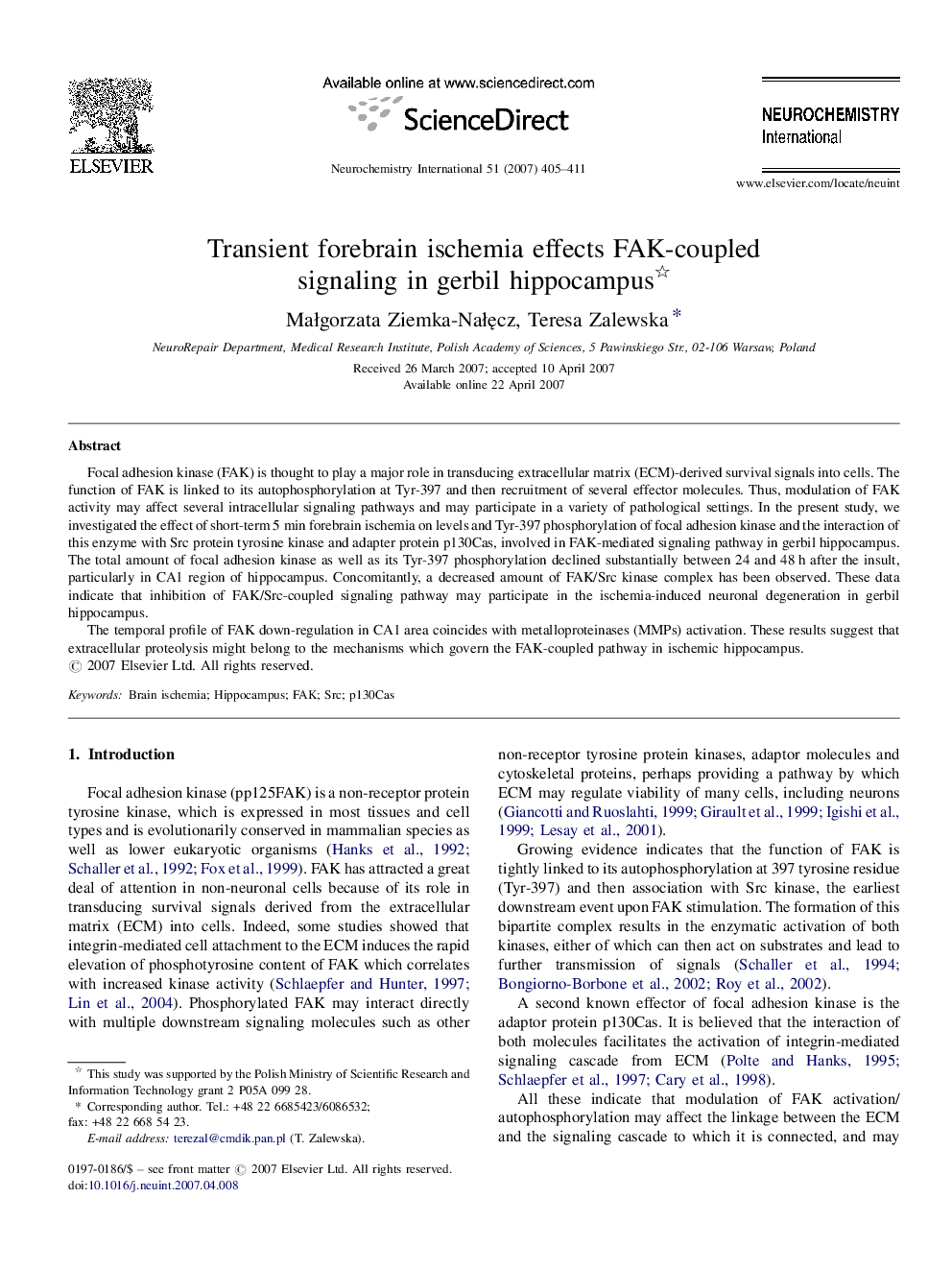| کد مقاله | کد نشریه | سال انتشار | مقاله انگلیسی | نسخه تمام متن |
|---|---|---|---|---|
| 2201830 | 1551320 | 2007 | 7 صفحه PDF | دانلود رایگان |

Focal adhesion kinase (FAK) is thought to play a major role in transducing extracellular matrix (ECM)-derived survival signals into cells. The function of FAK is linked to its autophosphorylation at Tyr-397 and then recruitment of several effector molecules. Thus, modulation of FAK activity may affect several intracellular signaling pathways and may participate in a variety of pathological settings. In the present study, we investigated the effect of short-term 5 min forebrain ischemia on levels and Tyr-397 phosphorylation of focal adhesion kinase and the interaction of this enzyme with Src protein tyrosine kinase and adapter protein p130Cas, involved in FAK-mediated signaling pathway in gerbil hippocampus. The total amount of focal adhesion kinase as well as its Tyr-397 phosphorylation declined substantially between 24 and 48 h after the insult, particularly in CA1 region of hippocampus. Concomitantly, a decreased amount of FAK/Src kinase complex has been observed. These data indicate that inhibition of FAK/Src-coupled signaling pathway may participate in the ischemia-induced neuronal degeneration in gerbil hippocampus.The temporal profile of FAK down-regulation in CA1 area coincides with metalloproteinases (MMPs) activation. These results suggest that extracellular proteolysis might belong to the mechanisms which govern the FAK-coupled pathway in ischemic hippocampus.
Journal: Neurochemistry International - Volume 51, Issues 6–7, November–December 2007, Pages 405–411